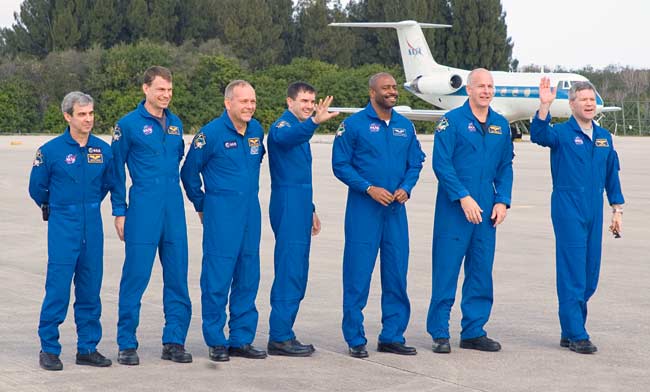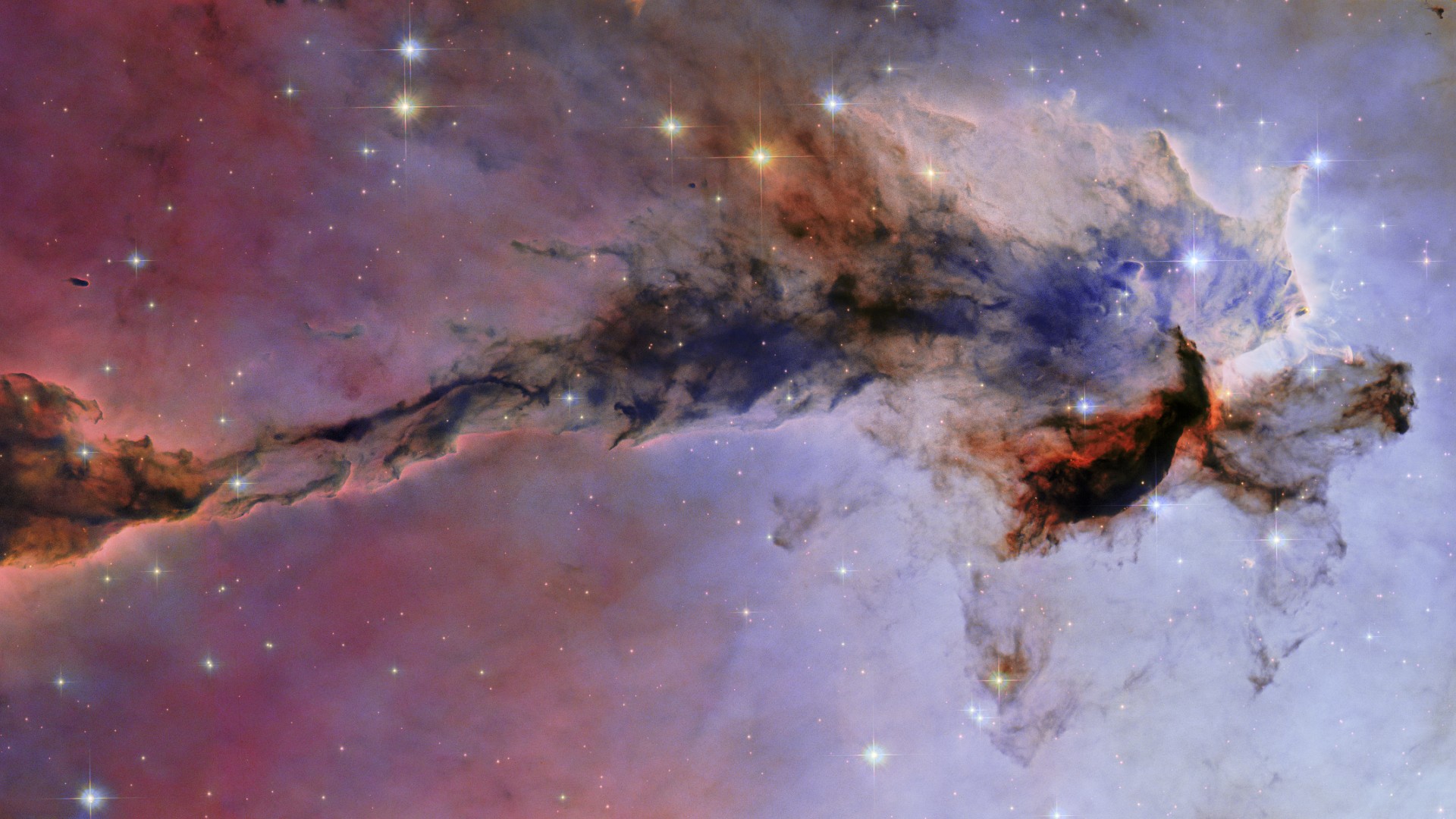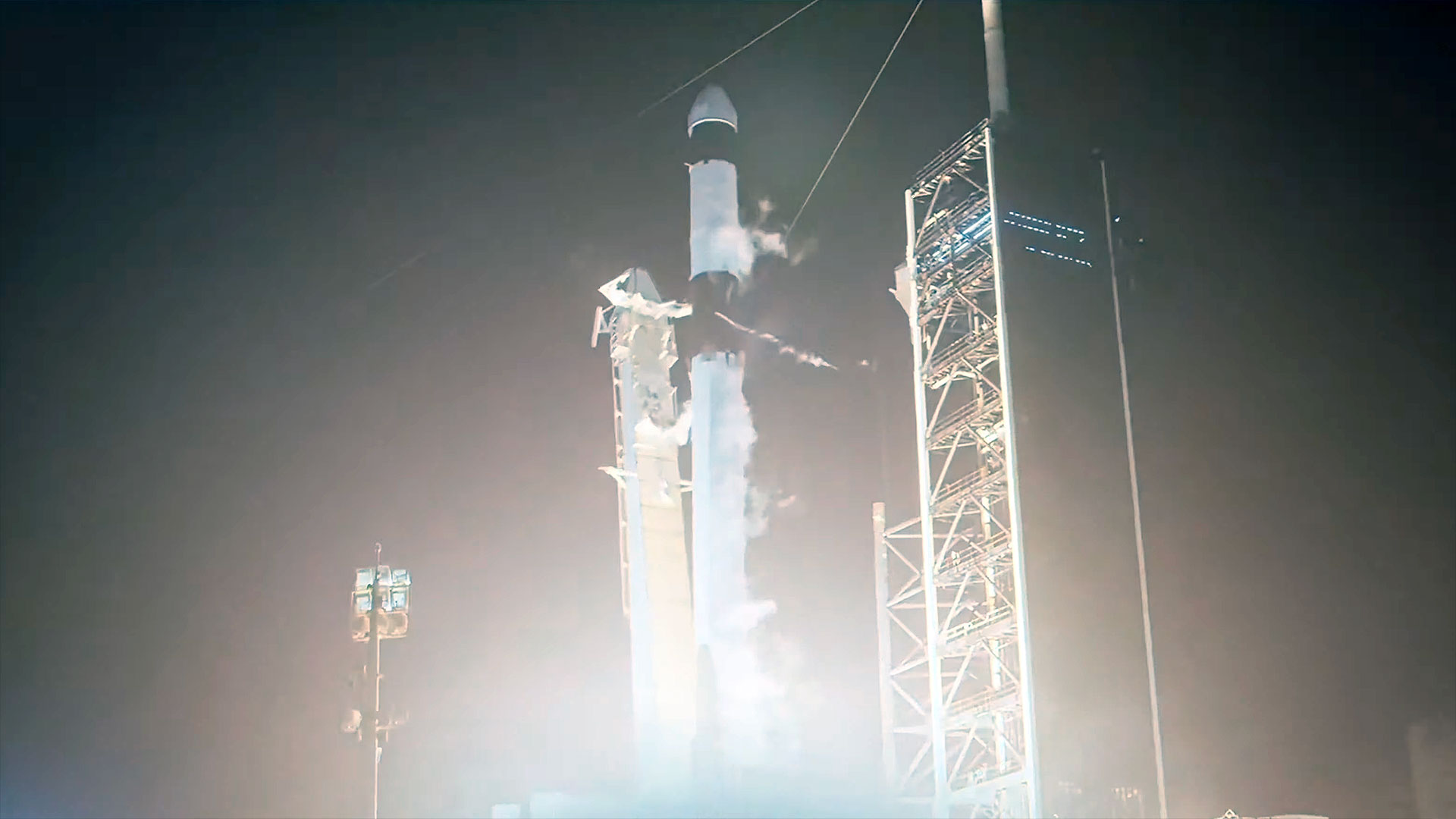Foul Weather May Delay Space Shuttle Launch

Thisstory was updated at 11:39 a.m. ET.
CAPECANAVERAL, Fla. ? Dreary Florida coast weather might push back a plannedThursday launch of the space shuttle Atlantis and its seven-astronaut crew,NASA mission managers said today.
NASA's100-ton spaceship is scheduled to launch on Feb. 7 at 2:45 p.m. EST (1945 GMT).Kathy Winters, the shuttle weather officer here at Kennedy Space Center (KSC), saidconditions through Wednesday will be good but rain showers and low-hanging cloudsexpected on Thursday are lowering launch day expectations.
"Bylaunch day, unfortunately ? we do have a chance of having some badweather," Winters said, who gave Atlantis a 40 percent chance of taking offon Thursday. She said any precipitation could damagethe thermally shielded belly of Atlantis as the spaceshiprockets to more than 17,500 mph (28,200 kph) to reach orbit.
"Wedon't want to trigger a lightning strike," Winters said of the expectedlow-hanging clouds. Should unfavorable weather move mission managers toscrub the first launch attempt, she said conditions will improve vastlyfor a try on Friday or Saturday.
Issuesironed out
Other thanthe fickle Florida coast weather, NASA test director Charlie Blackwell-Thompsonsaid there are no outstanding issues with the orbiter for launch.
Get the Space.com Newsletter
Breaking space news, the latest updates on rocket launches, skywatching events and more!
"Atlantisis ready to go fly and our team is prepared," Blackwell-Thompson said, butnoted the agency will be keeping a close eye on a Freon-filledcoolant hose within the payload bay of Atlantis. Technicians found the hosebent outof place last week and enacted a fix over the weekend using a V-shapedtool.
"Itpretty much went to plan," she said of the fix on Sunday. "We didn'thave any issues with it at all."
The kinkedhose discovery came just short of two months after NASA found two faulty fueltank sensors during pre-launch testing, ultimately prompting mission managersto delayAtlantis' launch to February.
The fourengine cutoff (ECO) sensors, as they are known, ensure thatcryogenically-cooled fuel in the 15-story external fuel tank of the spaceshuttle stops flowing before it runs out. Although the system is a backup for aprimary on-board system, engineers made a fix by removing the devices, permanentlysoldering some troublesome connections together and reinstalling them.
Ready tofly
Commandedby Stephen Frick, a former Navy captain and veteran spaceflyer, the crew ofSTS-122 will bring a 10.3-ton European laboratory to the International SpaceStation (ISS). During their 11-day mission, the astronauts will also swap crewmembers at the ISS and set up experiments outside of the soon-to-be-attachedlab.
Frickarrived today at KSC today at 10:29 p.m. EST (1529 GMT) along with the rest ofthe STS-122 crew: shuttle pilot Alan Poindexter, mission specialists LelandMelvin, Rex Walheim and Stanley Love, and European astronauts Léopold Eyhartsand Hans Schlegel.
"We'refeeling very good about this opportunity," Frick told members of the pressfrom the tarmac, just after he and his crew arrived from Johnson Space Center in Houston, Texas. "We'll keep looking at the weather, but we're very happyabout the condition of Atlantis."
Frickexplained that rather than being frustrated at a flight delayed by two months,he was glad the time was used to resolve the ECO sensor issues.
"TheECO sensor problem has been nagging us for a very long time. We really rely onthem," Frick said. "We use virtually all of our gas just to get up toorbit just for a normal mission, like 99.5 percent, and we can't afford to letthe engines run dry because they tend to come apart."
NASA is setto start the three-day countdown for Atlantis' launch at 5:00 p.m. EST (2200GMT) this evening.
NASA will broadcast Atlantis' STS-122 mission live on NASA TV. Click here for SPACE.com's STS-122 mission coverage and NASA TV feed.
- SPACE.com Video Interplayer: NASA's STS-122: Columbus Sets Sail for ISS
- The Great Space Quiz: Space Shuttle Countdown
- VIDEO: ISS Commander Peggy Whitson Takes Charge
Join our Space Forums to keep talking space on the latest missions, night sky and more! And if you have a news tip, correction or comment, let us know at: community@space.com.
Dave Mosher is currently a public relations executive at AST SpaceMobile, which aims to bring mobile broadband internet access to the half of humanity that currently lacks it. Before joining AST SpaceMobile, he was a senior correspondent at Insider and the online director at Popular Science. He has written for several news outlets in addition to Live Science and Space.com, including: Wired.com, National Geographic News, Scientific American, Simons Foundation and Discover Magazine.









